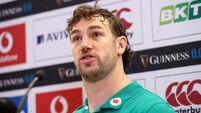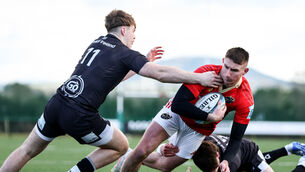Don’t expect any more McCaw gifts

After years of uncertainty as to where the All Black captain’s great, great, great- grandfather came from, researchers in Glasgow came up with the definitive answer — the little seaside town of Girvan on the Ayrshire coast.
The genealogical dig around the roots of the McCaw family tree, carried out by the family history centre at Glasgow’s Mitchell Library, found that Alexander McCaw, born in Girvan on New Year’s Day 1808, emigrated to New Zealand 69 years later.















